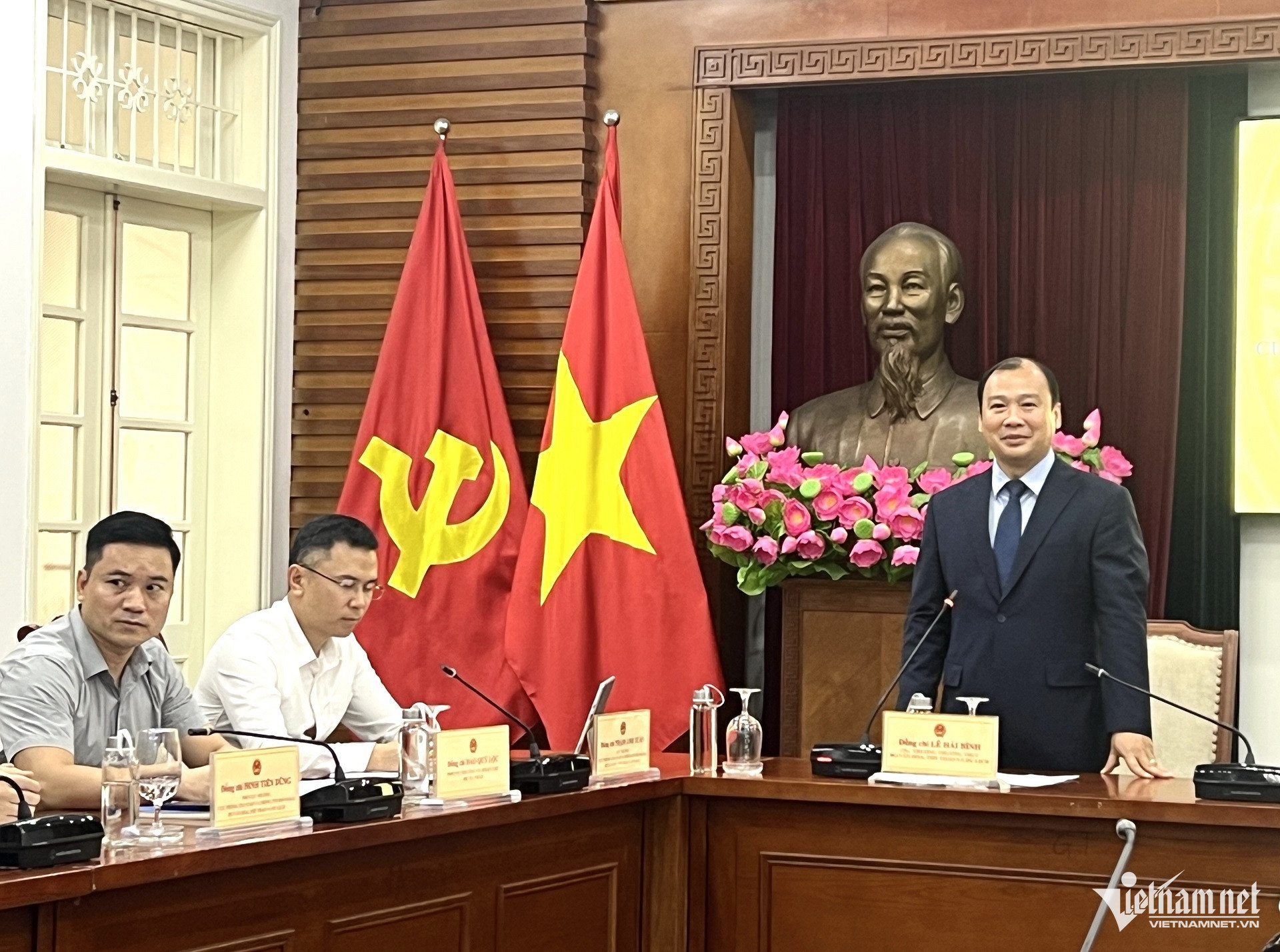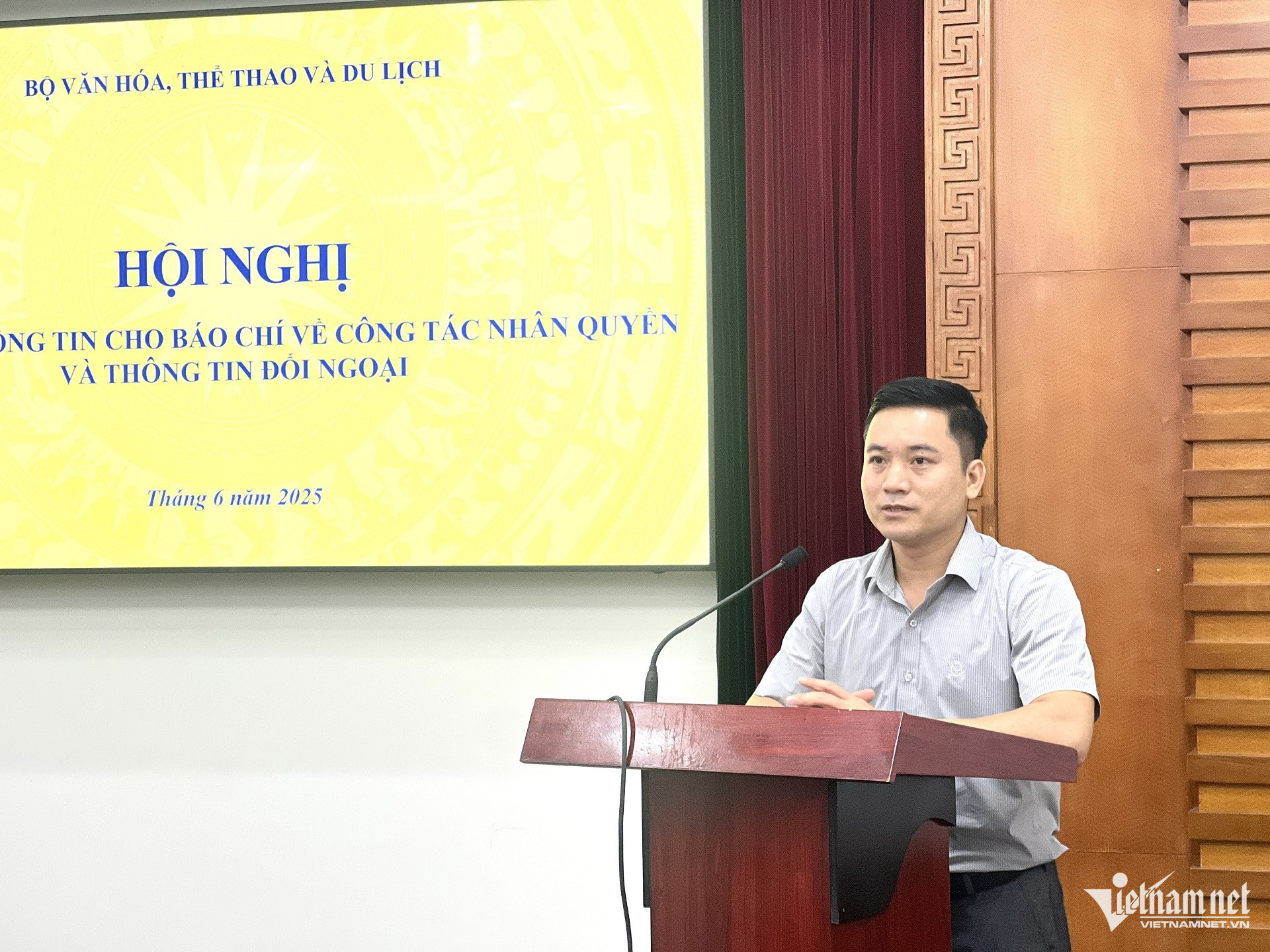With a spirit of openness, sincerity, cooperation, and constructiveness, five central themes will be presented during the session.

Mr. Le Hai Binh delivers opening remarks at the conference. Photo: Binh Minh
Shifting the narrative on human rights
The Ministry of Culture, Sports and Tourism held a press conference in Hanoi on June 30 to share updates on human rights work and foreign information dissemination for June.
In his opening remarks, Le Hai Binh, Permanent Deputy Minister of Culture, Sports and Tourism, highlighted key aspects of human rights communication and foreign information efforts moving forward.
He emphasized the dual responsibility of proactively informing the public with objective facts to help citizens stay updated on global developments while also cautiously managing sensitive topics that could impact national unity or foreign relations. Simultaneously, he urged the promotion of diverse and vivid portrayals of Vietnam's transformation and people to help international audiences gain timely and multifaceted understanding.
“As we step into a new era, we must shift our posture from passive reception to proactive engagement when it comes to human rights. We can do this with confidence, as Vietnam is increasingly attractive to many countries around the world, with several proposing to upgrade bilateral relations,” said Binh.
Vietnam prioritizes resources to safeguard civil and political rights
Colonel Le Hoang Duong, Deputy Director of the Ministry of Public Security's Department of External Affairs and Deputy Chief of the Standing Office of the Human Rights Steering Committee, emphasized that many countries now refer to new terms like “cognitive warfare” and “information warfare.” He acknowledged the press's pioneering role in defending the nation in this evolving landscape.
He urged the media to maintain consistent messaging on human rights, spotlight Vietnam’s achievements - such as its anti-human trafficking efforts - and continue to counter misinformation about the country’s human rights record.

Also at the conference, Dao Quy Loc, Deputy Director of the Department of International Cooperation at the Ministry of Justice, shared updates on Vietnam's fourth periodic report on implementing the International Covenant on Civil and Political Rights (ICCPR).
Vietnam joined the ICCPR in 1982. On March 22, 2023, the country submitted its fourth report (covering 2019-2022) to the Human Rights Committee. On April 11, 2024, the Committee issued a list of concerns regarding the report. Vietnam submitted its official responses on December 19, 2024.
The upcoming dialogue on July 7-8 in Switzerland aims to present five key messages:
First, Vietnam affirms the realization and respect for peoples’ right to self-determination, contributing to friendly, cooperative relations among nations and promoting international peace and understanding.
Second, the country is undergoing significant revolutionary reforms to usher in a new era of development. Expanding democracy and increasing citizen participation in state management have been key to ensuring and protecting civil and political rights.
Third, upholding a consistent policy on promoting and protecting human rights - especially civil and political rights - Vietnam has thoroughly reviewed its implementation of the ICCPR and considered the Committee’s 2019 recommendations. Noteworthy achievements include removing the death penalty for eight crimes, passing the Juvenile Justice Law, and amending the Law on Human Trafficking Prevention.
Fourth, the implementation of the ICCPR aligns with Vietnam’s ongoing legal and judicial reforms, tailored to the country's specific socio-economic conditions and development stage.
Fifth, while facing various challenges in fulfilling ICCPR obligations, Vietnam remains committed to prioritizing the best possible resources and adopting comprehensive measures to improve the enjoyment of civil and political rights. This includes enhancing climate resilience for vulnerable groups through suitable, phased approaches.
The ICCPR, adopted by the United Nations General Assembly in 1966 and effective from 1976, is one of the most complex and wide-ranging human rights treaties, covering an extensive array of civil and political rights. It currently has 174 state parties.
The Human Rights Committee is the monitoring body responsible for overseeing compliance with the ICCPR.
Since 2014, the Ministry of Justice has been assigned by the Prime Minister as the national focal point for Vietnam’s participation in the Covenant.
Binh Minh